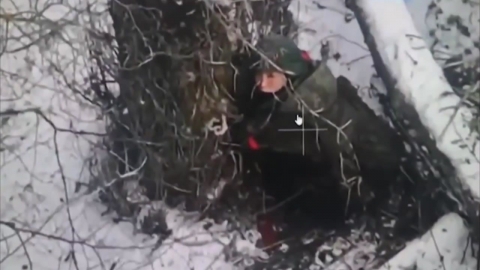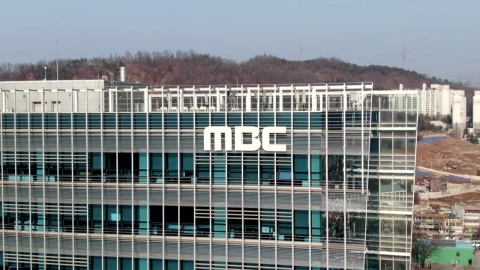An extraordinary Cabinet meeting presided over by Acting President Han Deok-soo began at 10 a.m.
It is drawing attention whether the opposition party will veto six controversial bills handled alone.
Let's listen to acting Han Deok-soo's opening remarks.
[Han Deok-soo / Acting President]
Among the bills passed by the National Assembly and transferred to the government on December 6, six bills that the government and the ruling party have consistently expressed opposition to.
As an acting president, I have considered and considered what kind of choice is the responsible government's attitude in a very severe situation nationally. The opinions of many people, businesses, and relevant ministries affected by these bills were also heard without any prejudice.
And I made the decision only by considering the spirit of the constitution and the future of the country first. The legislative power and purpose of the National Assembly should be respected as much as possible, but I would like to explain to the National Assembly and the people why the government is forced to request reconsideration and ask for their understanding.
First of all, I fully understand and respect the legislative purpose of the National Assembly, which seeks to guarantee the development of agricultural rural areas and the income of farmers in relation to the amendment of the four agricultural laws. However, if these laws are implemented, they will distort the function of the market, causing excessive supply of certain items such as rice, and will cause a huge financial burden. Considerable controversy is expected as it does not fit the basic principles of disaster damage support and insurance.
The amendment to the Grain Management Act was abolished after the government had already exercised its right to request reconsideration once in the 21st National Assembly, and was rejected through a re-decision by the National Assembly.
The revision of the law, which was transferred back to the government this time, not only did not supplement the concerns about the mandatory purchase of leftover rice raised by the government at the time of the request for reconsideration, but rather added a regulation to introduce a grain price stabilization system that requires the government to pay the difference if the market price of grain is below a certain price.
If implemented, the revision will not only fix the chronic oversupply structure of rice, further deepening the decline in rice prices, but will also make it difficult to function in the market due to increased rice production, adding to the government's excessive intervention and enormous financial burden. Considering the government's limited financial situation, huge financial investments in the implementation of the mandatory rice purchase system and grain price stabilization system will make it very difficult to invest in agricultural and rural areas for Korea's future, such as expanding smart farms and fostering young farmers.
As an alternative to this amendment, the government gathered opinions from various sectors, including the agricultural sector, and came up with a plan to stabilize income management for Korean farmers, but it is very regrettable that the amendment was passed without sufficient discussion and compromise at the National Assembly.
The amendment to the Act on Distribution and Price Stabilization of Agricultural and Marine Products calls for the government to mandate producers to pay the difference when market prices of major agricultural products such as vegetables and fruits fall below the standard price. This amendment is also concerned about side effects such as the amendment to the Grain Management Act.
If the agricultural product price stabilizer is implemented, agricultural production will be concentrated on items subject to price stabilization, which will lead to very unstable supply and demand of agricultural products and prices. In addition, excessive financial burdens arise, making it difficult to allocate resources for future agricultural and rural communities. It is also an approach that goes against the global trend of shifting agricultural policy from the center of agricultural price support that distorts the market to strengthening the farm income safety net.
The revision of the Agricultural and Fisheries Disaster Countermeasures Act and the Agricultural and Fisheries Disaster Insurance Act covers the cost of production before the disaster beyond supporting the restoration of damaged facilities and stabilizing the livelihood of affected residents in the event of a disaster in the agricultural and fisheries sector. In addition, even if insurance money is paid to farmers and fishermen due to damage caused by natural disasters, the premium rate cannot be increased.
However, the state's compensation for production costs in addition to disaster recovery costs is contrary to the basic principles of disaster support under the Disaster Safety Act, and there are concerns about equity issues and moral hazard with other areas.
In addition, excluding damage from natural disasters from premium coverage goes against the basic principle of insurance that premiums should be proportional to disaster risk, and the same basic premium rate is applied to all subscribers with different disaster risks, creating equity issues between subscribers. It cannot be overlooked that private insurers are rather reluctant to insure small farmers and fishermen.
The revision of the National Assembly Act allows the Special Committee on Budget and Accounts and the Standing Committee to continue the review of the budget and revenue budget incidental bills even after November 30.
Article 54 (2) of the Constitution of the Republic of Korea stipulates that the National Assembly must vote on the budget by 30 days before the fiscal year. However, the revision of the National Assembly Act provides the basis for the National Assembly to review the budget without being bound by the Dec. 2 deadline for the constitution, which is contrary to the purpose of the Constitution, which sets the minimum standards that the National Assembly must comply with for smooth budget execution.
If the amendment is implemented and there is no mechanism to induce the budget bill to be resolved within the deadline set by the Constitution, the National Assembly's decision will be delayed as before and the damage will be entirely lost to the people.
The revision of the Act on Testimony Appraisal at the National Assembly extends the scope of witnesses subject to accompanying orders to important agenda reviews and hearings in parliamentary audits and parliamentary investigations, and stipulates that witnesses and reference persons cannot refuse to submit data for reasons such as personal information protection and trade secret protection.
Our Constitution stipulates that restricting the basic rights of the people should be the minimum scope for achieving legislative objectives. However, expanding the accompanying order system to important agenda review and hearings is likely to violate the principle of proportionality and clarity under the constitution, violating the basic rights of the people, the freedom of the body.
In addition, it is highly likely to infringe on the secret and freedom of privacy, such as the right to make personal information decisions, against the constitutional principle of separation of powers by preventing them from rejecting the National Assembly's request to submit data for any reason. Corporate sites are also very concerned about the possibility of leakage of core technologies and trade secrets.
At a time when cooperation between the government and the ruling and opposition parties is more urgent than ever, I feel very heavy to ask the National Assembly to reconsider the six bills. However, the government cannot help but make responsible decisions that put the spirit of the constitution and the future of the country first.
Regardless of the ruling and opposition parties and the government, there will be one heart for the future of the Republic of Korea and for the people. However, there may be differences in thinking about the way there, depending on the location or situation in which each person is located. I think it is imperative that the National Assembly and the government work together to overcome these differences and find solutions for all through dialogue and compromise.
After today's Cabinet meeting, I earnestly appeal to the National Assembly to discuss the bills demanded by the government again in depth and seek desirable alternatives. The government will also actively participate and support in a forward-looking and candid manner.
Thank you.
※ 'Your report becomes news'
[Kakao Talk] YTN Search and Add Channel
[Phone] 02-398-8585
[Mail] social@ytn.co.kr
[Copyright holder (c) YTN Unauthorized reproduction, redistribution and use of AI data prohibited]
Politics
More- Acting Han Deok-soo exercises his veto on six bills..."The first decision in the spirit of the Constitution".
- NEC "There is no basis for claiming fraudulent elections..."Shaking the foundation of the electoral system"
- [YTN real-time news] The 2nd call will be announced today.Yoon said, "I don't know."
- Second Armored Brigade Commander Pangyo Information Officer's Office Waiting...Army "I'm not ready to send troops."
![[Jeonbuk] Jeonbuk Self-Governing Province Meeting with Small Businessmen-Exporting Small and Medium Businesses](https://www.ytn.co.kr/img/news/default_img.jpg)
![[Weather] Seoul for the second day -10℃ ↓...Weekend snow rain, up to 10 cm](https://image.ytn.co.kr/general/jpg/2024/1219/202412191243184190_h.jpg)







